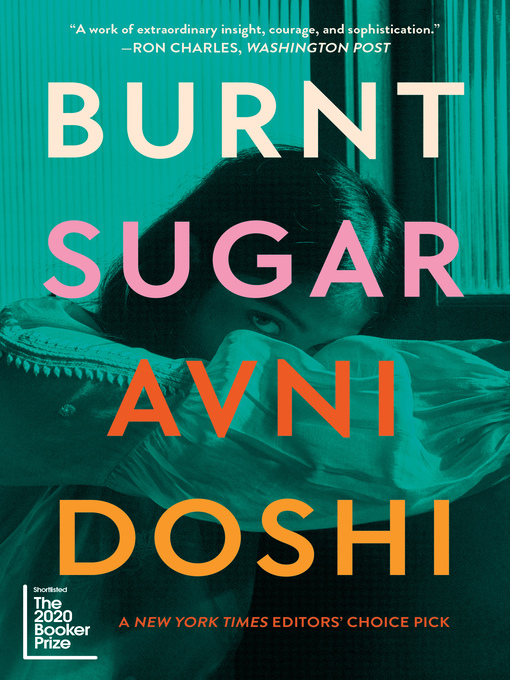Review by Booklist Review
Doshi's debut novel, shortlisted for the Booker Prize, delves into the complicated relationship between a mother and daughter as pivotal moments of their lives intersect. Artist Antara contemplates her unconventional childhood, much of it lived in an ashram near Pune, India, as she considers motherhood. Her mother, Tara, begins to show signs of early dementia, despite her doctors' insistence that there is nothing physically wrong. This non-diagnosis doesn't make sense to Antara, who observes and bears the weight--sometimes crushingly heavy--of her mother's increasing need. She uses the same fervent, consuming, analytical process to seek answers to her mother's decline that she uses in her art, most of which centers around drawing the same man's face day after day. Doshi's language, by contrast, is expansive and fluid, even dreamlike at times, unspooling through serpentine paths and leaving the reader wondering, as Antara does, about the boundaries between reality and an imagined past. Doshi is a talent to watch, and this debut will readily find an audience in readers seeking well-crafted examinations of messy relationships, both internal and external.
From Booklist, Copyright (c) American Library Association. Used with permission.
Review by Publisher's Weekly Review
Doshi's stunning second novel (after Girl in White Cotton), shortlisted for the Booker Prize, explores the murky, toxic relationship between a mother and daughter living in the Indian city of Pune. Antara, a reflective, recently married artist, notices something is off with her volatile, demanding mother, Tara. Doctors believe it's early-onset dementia but can't find biological evidence of the disease, causing Antara to wonder if her mother is willfully forgetting her. She concludes her mother named her Antara ("Un-Tara") "because she hated herself," setting up a dynamic in which the two women became pitted against each other. She reexamines her early years living in an ashram, where her mother landed after leaving her husband. There, Tara fell in love with the ashram leader but neglected her daughter, not seeing Antara for weeks at a time. The young Antara refused to eat and eventually resigned herself to self-sufficiency to avoid beatings from her mother. Tara's rejection of her daughter continues after Antara's grandparents send her to boarding school against her will and Tara neglects to intervene, and Tara later criticizes Antara's teenage body. Yet by the captivating conclusion, Tara's memory loss proves too much for Antara, causing the daughter to react in ways she never expected. Doshi's portrayal of troubled mother-daughter intimacy is viscerally poetic. This has the heft and expansiveness of a classic 19th-century novel. (Jan.)
(c) Copyright PWxyz, LLC. All rights reserved
Review by Kirkus Book Review
Dark emotions color a daughter's complex connection to her mother in a striking first novel that delves deep into family bonds. "I would be lying if I said my mother's misery has never given me pleasure." This is the devastating opening sentence of American writer Doshi's provocative debut, which offers a fierce, compelling depiction of the painfully intertwined lives of a mother and daughter in Pune, India. Tara, the mother, was neglectful and careless; Antara, the daughter, will become her unwilling but affixed life companion. Abandoning a gloomy marriage to join an ashram and become the lover of Baba, its leader, Tara exhibits a pattern of inadequate parenting that continues, four years later, when Baba replaces her with a younger model. Tara and Antara, now 7, are next to be found begging outside the Club in Pune, eventually to be rescued by Antara's father, who, meanwhile, has divorced Tara and is remarrying. These and other episodes from the past--including Tara's later love affair with an unreliable artist and Antara's lonely months spent at an abusive boarding school--are sandwiched between slices of the contemporary narrative. Here Tara is sliding into dementia and Antara, comfortably married to Dilip, is trying to care for the parent whose care of her was so disastrous. Antara's voice is frank, skeptical, even comical while exposing the fragile psychology life has dealt her. Above all, she scrutinizes the unbreakable/unbearable link to a figure who haunts and half subsumes her, a razor's edge which Doshi captures in simple, effective prose: "Even now, when I…want to be without her, when I know her presence is the source of my unhappiness--that learned longing still rises, that craving for soft, white cotton that has frayed at the edge." A landmark portrait of toxic parenting and its tangled aftermath. Copyright (c) Kirkus Reviews, used with permission.
Copyright (c) Kirkus Reviews, used with permission.


